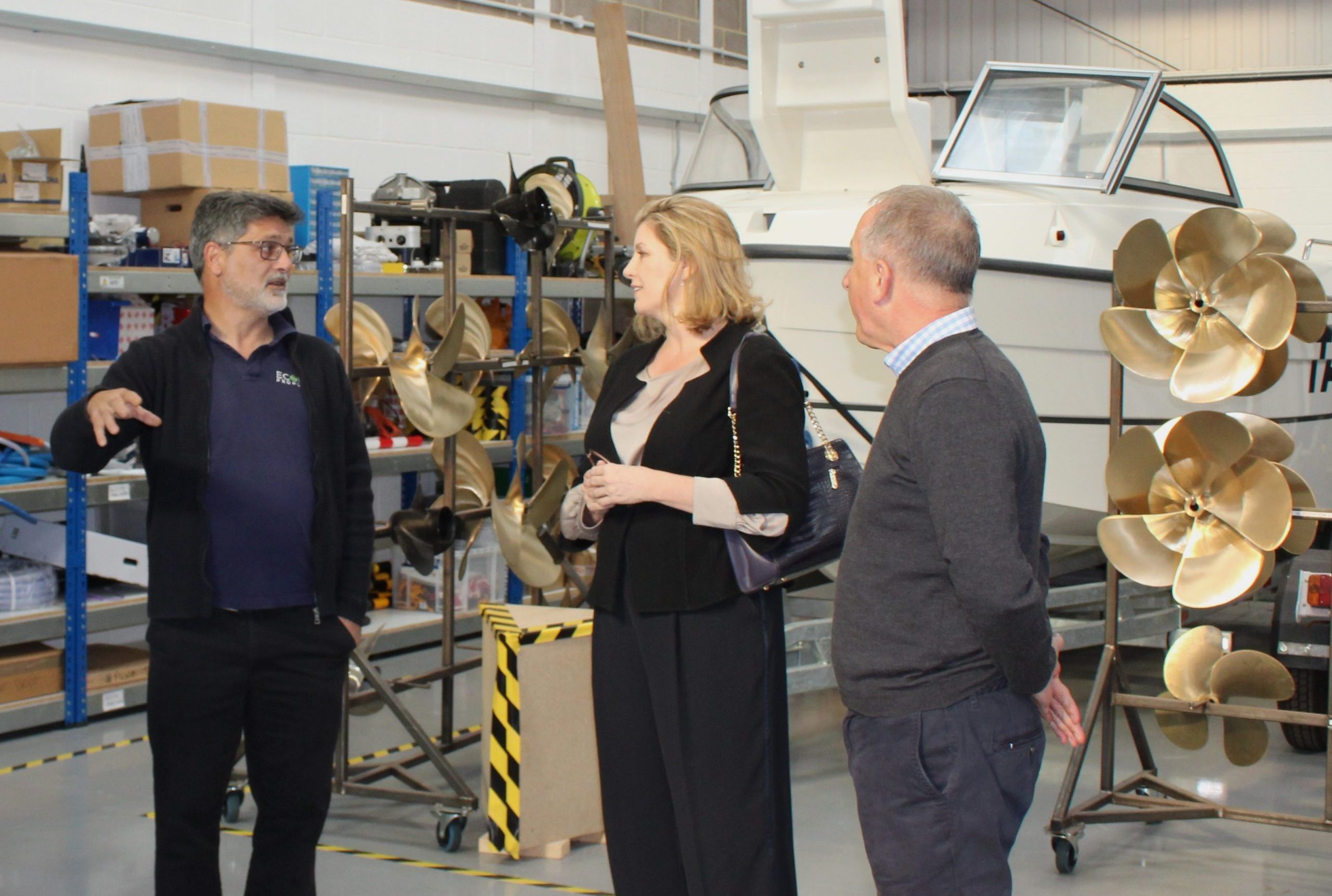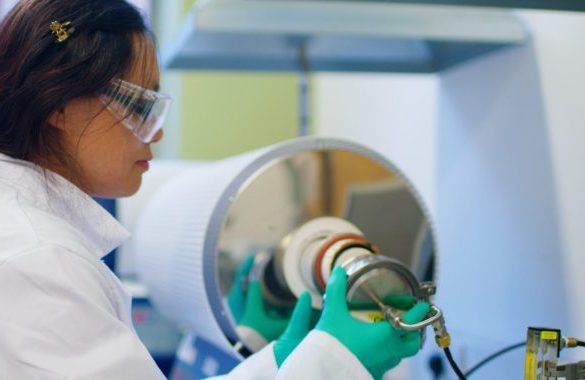Ecomar Propulsion and Shoreham Port are at the forefront of adapting clean technology for the marine environment.
The partners have announced a 3 year operation to test a 30 year old recycled, battery powered boat. The partnership aims to demonstrate how inland waterways and ports can benefit from Ecomar Propulsion’s zero emission motors.
In 2022, a 30 year old, Glass Reinforced Plastic (GRP) boat was lying in a scrap yard in Aberdeen. During its working life, the boat had been used to contain oil spillages around the harbour but had now been abandoned to landfill. Ecomar Propulsion’s core guiding principles are to reduce waste and greenhouse gas emissions (GHGs) at every stage, so it set out to prove that it is possible to convert even the most polluting vessels into clean ones.
The boat, (originally built by Vikoma on the Isle of Wight), was previously used to lay absorbent booms to collect oil spills from North Sea rigs. After long service, the boat was at the end of its natural life and was destined for landfill before being purchased by Ecomar. Like most boats made in the past 50 years, it was constructed using composite GRP, which cannot be recycled. However, with some imagination it has now found a new lease of life and is expected to remain in service for at least another 10 years.
“Plastic boats that have no remaining useful purpose are becoming a bigger and bigger issue,”. “We aim to prove that it is economically viable to recycle boats like this and to get them working to offset carbon,” said Eugene Bari, CEO of Ecomar Propulsion. “This boat is a great example of how industries can adapt apparently useless machines. This boat could easily have been wasted but now it has been given a new purpose that benefits everyone”.
Ecomar Propulsion installed a new keel and fitted a 100kW zero emission Ecomar Propulsion KAIROS inboard motor.
David Daish, Sales Manager for Ecomar added:
“The team designed and installed the maximum number of recyclable parts including a driveshaft, rudder and high voltage energy system. The motor is a high power, axial flux design with a minimal space requirement and the aluminium wheelhouse, console and non-toxic cooling systems were designed and fabricated by the team in Fareham.
The reclamation theme was continued, even in the workshop where a rusting old steel transport “dolly” was recovered from scrap and used to move the boat around in the yard. By re-tasking and salvaging equipment, the company proved that British ingenuity is alive and well.
The team had one priority throughout, to be “sustainable by design”. This ethos carried on through every step of the decision-making process.
The drivetrain and battery include an in-line axial flux motor producing a peak power of 80kW and a 46.6kWh battery in a steel casing, producing 666v. The cooling system draws in raw sea water and removes excess heat via a heat exchanger. This system “swaps” waste heat via a closed loop, ensuring no pollution can escape. A final modification was to install an electric bow thruster running from traditional batteries.
Shoreham Port, a Trust Port and certified EcoPort on the South Coast of England, teamed up with Ecomar Propulsion for a pioneering pilot project to introduce the electric vessel to the Port’s own fleet. By loaning the refurbished Vikoma to the team at Shoreham, Ecomar mark the start of an exciting three-year collaborative project.
The Vikoma will now be a regular sight patrolling the Port’s 1.6-mile canal. The joint initiative highlights the partner organisations’ commitment to environmental responsibility, with the Vikoma leading the charge for cleaner, green-powered waters.
Julian Seaman, Shoreham Port’s Harbour Master and Marine Operations Director commented:
“We’re pleased to begin a new partnership with Ecomar, introducing an electric vessel to our Port’s fleet for the first time, marking a significant step towards our net zero ambitions. The three-year trial will provide crucial data and assess the addition of electric-powered vessels within our fleet.”
Eugene Bari said:
“From Ecomar Propulsion’s perspective, this is the perfect solution. Not only does the boat have a new life, but it will continue with its mission long into the future. After 30 years of arduous work saving Aberdeen from oil spills, it has moved on to serving Shoreham Port. The next few years will see the team in Shoreham and at Ecomar Propulsion collect data which can be used to show how much Green House Gas pollution has been removed – simply by recycling a dead asset into a useful clean machine.”





